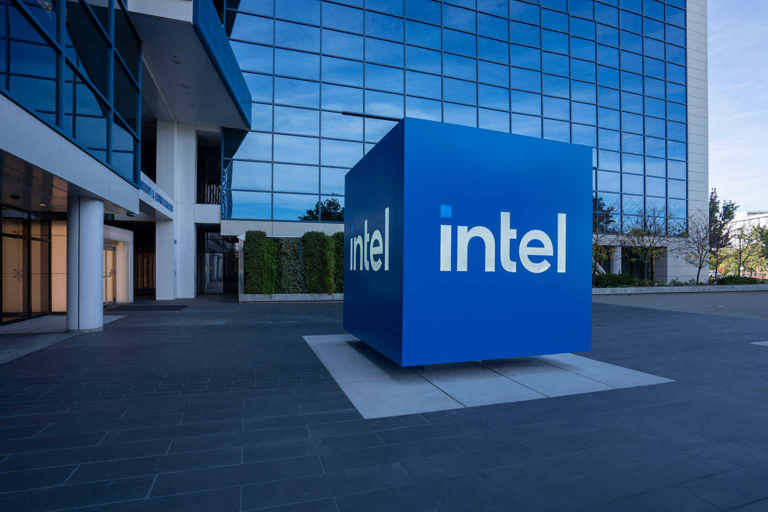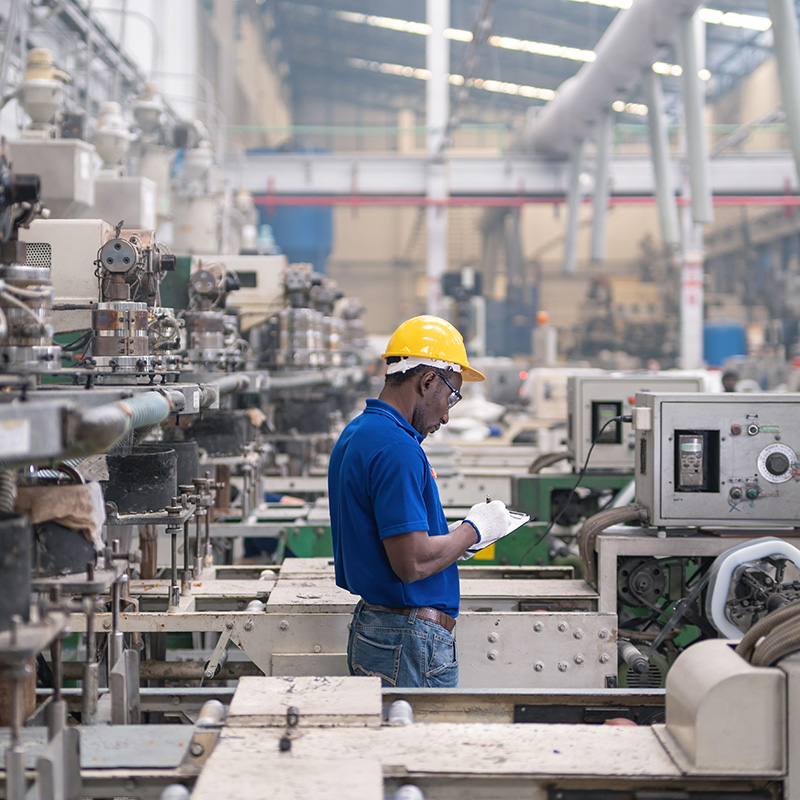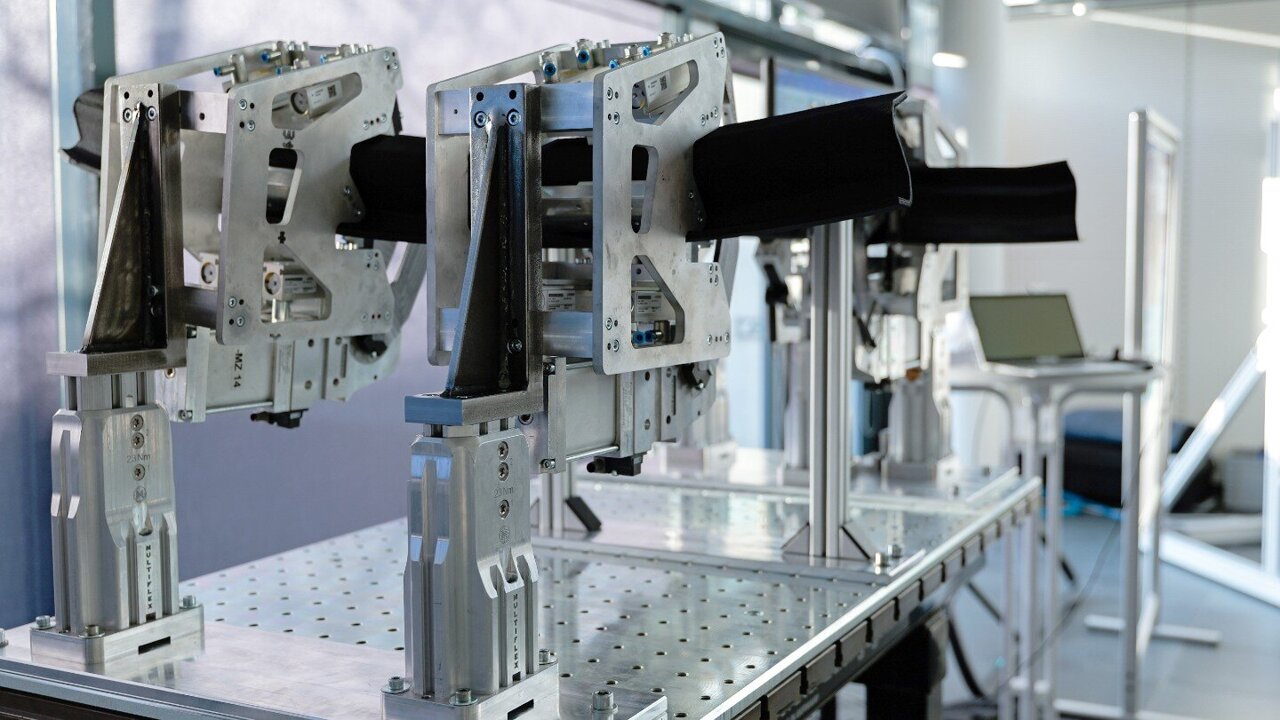Chips and Alliances: Intel's Bold Leap Forward in Semiconductor Manufacturing
Manufacturing
2025-04-29 17:51:17Content

Intel Unveils Exciting Advances in Semiconductor Manufacturing at Foundry Connect Event
In a dynamic showcase of technological innovation, Intel (NASDAQ:INTC) made significant strides during its recent Foundry Connect event, revealing groundbreaking partnerships and providing crucial updates on its cutting-edge foundry manufacturing initiatives.
The tech giant highlighted a promising development: multiple customers are now preparing to develop test chips using Intel's advanced 14A manufacturing process. This next-generation semiconductor node, still in the critical stages of development and rigorous testing, represents a potential leap forward in chip design and performance.
By bringing together industry partners and demonstrating its commitment to pushing technological boundaries, Intel is positioning itself at the forefront of semiconductor manufacturing. The 14A process signals the company's ambitious strategy to remain competitive in an increasingly complex and fast-evolving tech landscape.
As the semiconductor industry continues to evolve, Intel's proactive approach in developing and showcasing new manufacturing technologies underscores its determination to maintain a leading position in chip innovation.
Intel's Foundry Revolution: Pioneering the Future of Semiconductor Manufacturing
In the rapidly evolving landscape of technological innovation, semiconductor manufacturing stands at the critical intersection of cutting-edge research and industrial transformation. As global demand for advanced computing continues to surge, companies like Intel are positioning themselves at the forefront of a technological renaissance that promises to reshape the entire semiconductor ecosystem.Breakthrough Technologies Reshaping the Silicon Frontier
The 14A Process: A Quantum Leap in Semiconductor Engineering
Intel's groundbreaking 14A advanced manufacturing process represents a monumental stride in semiconductor technology. This revolutionary approach goes beyond traditional manufacturing limitations, introducing unprecedented precision and efficiency in chip design. Engineers and researchers have meticulously developed this process to address the increasingly complex demands of modern computing infrastructure, pushing the boundaries of what was previously considered technologically feasible. The 14A process embodies a comprehensive reimagining of semiconductor fabrication, integrating advanced nanoscale engineering techniques with sophisticated materials science. By implementing cutting-edge lithography methods and exploring novel semiconductor materials, Intel is creating a new paradigm of technological potential that could fundamentally transform computational capabilities across multiple industries.Strategic Partnerships and Collaborative Innovation
Intel's strategic approach extends far beyond internal research, emphasizing collaborative partnerships that accelerate technological development. By engaging with multiple customers and technology partners, the company is creating an ecosystem of innovation that transcends traditional competitive boundaries. These partnerships represent a sophisticated network of knowledge exchange, where expertise from diverse technological domains converges to solve complex engineering challenges. The collaborative model adopted by Intel allows for rapid prototyping and testing of advanced chip designs, enabling a more dynamic and responsive approach to semiconductor manufacturing. By inviting multiple stakeholders to participate in the development process, Intel is democratizing technological innovation and creating a more inclusive technological landscape.Global Implications of Advanced Manufacturing Techniques
The development of the 14A manufacturing process carries profound implications for global technological infrastructure. As computational demands continue to escalate across sectors like artificial intelligence, cloud computing, and advanced telecommunications, semiconductor manufacturing becomes increasingly critical to global technological progress. Intel's innovations represent more than mere technological improvements; they symbolize a fundamental reimagining of computational potential. By pushing the boundaries of what is possible in semiconductor design, the company is laying the groundwork for future technological breakthroughs that could revolutionize industries ranging from healthcare to space exploration.Economic and Technological Ecosystem Transformation
The ripple effects of Intel's foundry developments extend far beyond immediate technological capabilities. These advancements are poised to create new economic opportunities, stimulate job creation in high-tech sectors, and potentially reshape global technological competitiveness. By investing heavily in research and development, Intel is not just manufacturing chips but cultivating an entire ecosystem of technological innovation. The strategic significance of these developments cannot be overstated. As nations and corporations compete for technological supremacy, semiconductor manufacturing has emerged as a critical battleground of economic and strategic importance. Intel's initiatives position the company as a key player in this global technological competition, potentially influencing geopolitical dynamics through technological leadership.RELATED NEWS
Manufacturing

Tech Titan Shake-Up: Intel Taps Lip-Bu Tan to Steer Company's Future, Signals Major Strategic Pivot
2025-03-13 07:46:31
Manufacturing

Federal Funding Cut Threatens Maryland's Manufacturing Training Initiative
2025-04-07 22:38:24
Manufacturing

India Surges Ahead: How the Smartphone Manufacturing Landscape is Shifting
2025-04-04 00:30:00





